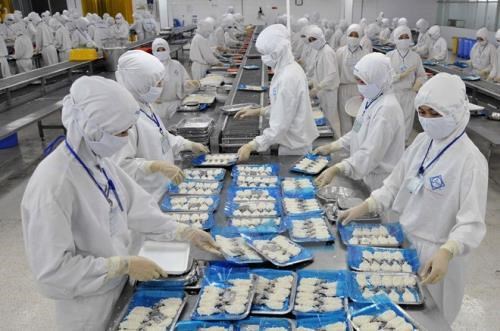
Enterprises should master the rules of origin and non-tariff measures laid out in free trade agreements (FTAs) to make the most use of those deals to boost exports, heard a recent conference in Bien Hoa city, Dong Nai province.
Enterprises should master the rules of origin and non-tariff measures laid out in free trade agreements (FTAs) to make the most use of those deals to boost exports, heard a recent conference in Bien Hoa city, Dong Nai province.
 |
| Illustrative Image (Photo:VNA) |
Jointly organised by the European Trade Policy and Investment Support Project (EU-MUTRAP) and the provincial Department of Industry and Trade, the event aimed to support state management agencies and enterprises in grasping the rules of origin and non-tariff measures set in the EU-Vietnam FTA (EVFTA) and the Vietnam-the Republic of Korea FTA (VKFTA) in order to boost Vietnamese exports to these markets.
At the conference, Trinh Thi Thu Hien, an official from the Ministry of Industry and Trade, clarified regulations on the rules of origin in the two agreements and guided how to apply the rules of origin code to see whether goods are entitled to the FTAs’ preferential tariff treatments.
Regarding non-tariff measures, including those on food safety, animal and plant quarantine, technical barriers to trade (TBT) and customs, Deputy Director of the Vietnam Sanitary and Phytosanitary Notification Authority and Enquiry Point (SPS) under the Ministry of Agriculture and Rural Development Tran Viet Cuong said meeting TBT requirements is a prerequisite condition for Vietnamese exporters to access the EU and RoK markets and others.
The FTAs will create a close framework on TBT, helping enhance transparency, stability and predictability which will bolster the investment activities of Vietnamese enterprises and other partners, he said.
He added that enterprises should update information on the SPS requirements of participating FTA countries, especially ASEAN harmonisation standards, focusing on food quality and safety in accordance with international standards and export markets.
Nguyen Viet Nga, Deputy Director of the Department of International Cooperation under Vietnam Customs, shared that commitments on customs procedures and cooperation will make customs management work more effective.
However, Vietnam should continue to improve the competency of officials in the sector as well as developing information and risk management systems, in order to make use of the advantages and opportunities brought about by the FTAs.
(Source:VNA)




